SEARCH BY TITLE
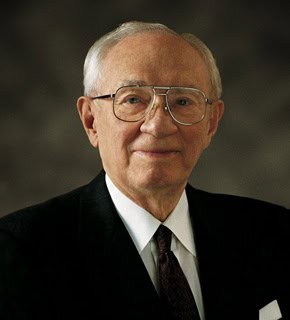 And the Greatest of These Is Love
And the Greatest of These Is Love
Almost without exception these valentines had printed on their face the words, “I love you.” I have since come to know that love is more than a paper heart. It is the very essence of life. It is the pot of gold at the end of a rainbow. But it is not at the end of a rainbow; it is at the beginning, and from it springs the beauty that arches across the sky on a stormy day. It is the security for which children weep, the meat and drink of youth, the adhesive that binds marriage and the lubricant that prevents devastating friction in the home; it is the peace of old age, the sunlight of hope shining through death. How impoverished are those who lack it, and how rich those who have it! For most of you here today, it is one of the reasons for your presence on campus. You are here because of the love of your parents, whose interest is your present and future happiness. You say you are here to gain an education, and I hope that is true. But in your hearts you know you are also here to find a companion, that someone with whom you hope you can fall in love, later marry, and then live happily with forever after. This is not an idle, idyllic dream. It happens. I know it happens; I have experienced it. And you know it happens and you hope and pray it will happen to you.
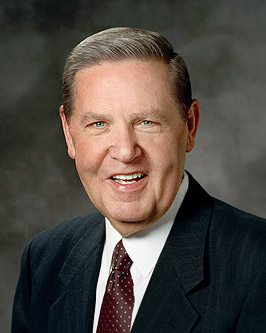 The First Great Commandment
The First Great Commandment
My beloved brothers and sisters, I am not certain just what our experience will be on Judgment Day, but I will be very surprised if at some point in that conversation, God does not ask us exactly what Christ asked Peter: “Did you love me?” I think He will want to know if in our very mortal, very inadequate, and sometimes childish grasp of things, did we at least understand one commandment, the first and greatest commandment of them all—“Thou shalt love the Lord thy God with all thy heart, and with all thy soul, and with all thy strength, and with all thy mind.” And if at such a moment we can stammer out, “Yea, Lord, thou knowest that I love thee,” then He may remind us that the crowning characteristic of love is always loyalty. “If ye love me, keep my commandments,” Jesus said. So we have neighbors to bless, children to protect, the poor to lift up, and the truth to defend. We have wrongs to make right, truths to share, and good to do. In short, we have a life of devoted discipleship to give in demonstrating our love of the Lord. We can’t quit and we can’t go back. After an encounter with the living Son of the living God, nothing is ever again to be as it was before. The Crucifixion, Atonement, and Resurrection of Jesus Christ mark the beginning of a Christian ife, not the end of it. It was this truth, this reality, that allowed a handful of Galilean fishermen-turned-again-Apostles without “a single synagogue or sword” to leave those nets a second time and go on to shape the history of the world in which we now live.
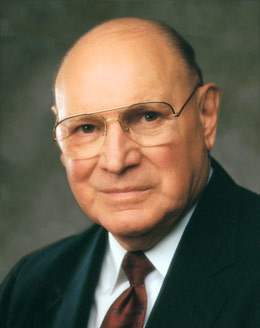 The Great Commandment
The Great Commandment
“Charity is the pure love of Christ.” The Savior exemplified that love and taught it even as He was tormented by those who despised and hated Him. On one occasion the Pharisees tried to trap Jesus by asking Him a seemingly impossible question: “Master,” they asked, “which is the great commandment in the law?” The Pharisees had debated this question extensively and had identified more than 600 commandments. If prioritizing them was such a difficult task for scholars, certainly they thought the question would be impossible for this son of a carpenter from Galilee. But when the Pharisees heard His answer, they must have been troubled, for it pointed to their great weakness. He replied: “Thou shalt love the Lord thy God with all thy heart, and with all thy soul, and with all thy mind. “This is the first and great commandment. “And the second is like unto it, Thou shalt love thy neighbour as thyself. “On these two commandments hang all the law and the prophets.” Since that day, this inspired pronouncement has been repeated through many generations. Now, for us, the measure of our love is the measure of the greatness of our souls. The scriptures tell us that “if any man love God, the same is known of him.” What a wonderful promise—to be known of Him. It makes the spirit soar to think that the Creator of heaven and earth could know us and love us with a pure, eternal love. In 1840 the Prophet Joseph sent an epistle to the Twelve wherein he taught that “love is one of the chief characteristics of Deity, and ought to be manifested by those who aspire to be the sons of God. A man filled with the love of God, is not content with blessing his family alone, but ranges through the whole world, anxious to bless the whole human race.” As we reach out in love to those around us, we fulfill the other half of the great commandment to “love thy neighbour as thyself.” Both commandments are necessary, for as we bear one another’s burdens, we fulfill the law of Christ.
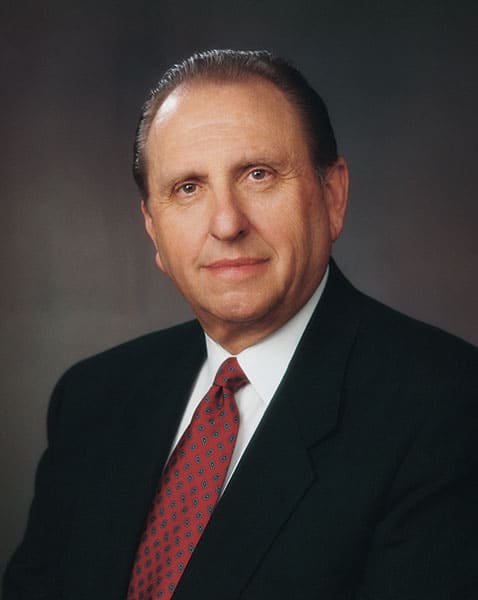 Love – the Essence of the Gospel
Love – the Essence of the Gospel
We cannot truly love God if we do not love our fellow travelers on this mortal journey. Likewise, we cannot fully love our fellowmen if we do not love God, the Father of us all. The Apostle John tells us, “This commandment have we from him, That he who loveth God love his brother also.” We are all spirit children of our Heavenly Father and, as such, are brothers and sisters. As we keep this truth in mind, loving all of God’s children will become easier. Actually, love is the very essence of the gospel, and Jesus Christ is our Exemplar. His life was a legacy of love. The sick He healed; the downtrodden He lifted; the sinner He saved. At the end the angry mob took His life. And yet there rings from Golgotha’s hill the words: “Father, forgive them; for they know not what they do” —a crowning expression in mortality of compassion and love. There are many attributes which are manifestations of love, such as kindness, patience, selflessness, understanding, and forgiveness. In all our associations, these and other such attributes will help make evident the love in our hearts. Usually our love will be shown in our day-to-day interactions one with another.
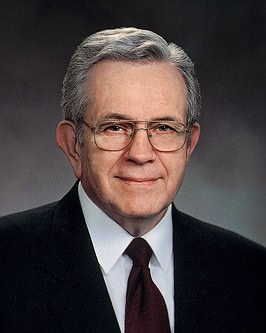 The Plan of Happiness
The Plan of Happiness
Ideally, mating begins with romance. Though customs may vary, it flourishes with all the storybook feelings of excitement and anticipation, even sometimes rejection. There are moonlight and roses, love letters, love songs, poetry, the holding of hands, and other expressions of affection between a young man and a young woman. The world disappears around the couple, and they experience feelings of joy. And if you suppose that the full-blown rapture of young romantic love is the sum total of the possibilities which spring from the fountains of life, you have not yet lived to see the devotion and the comfort of longtime married love. Married couples are tried by temptation, misunderstandings, financial problems, family crises, and illness, and all the while love grows stronger. Mature love has a bliss not even imagined by newlyweds. True love requires reserving until after marriage the sharing of that affection which unlocks those sacred powers in that fountain of life. It means avoiding situations where physical desire might take control. Pure love presupposes that only after a pledge of eternal fidelity, a legal and lawful ceremony, and ideally after the sealing ordinance in the temple are those procreative powers released in God’s eye for the full expression of love. It is to be shared solely and only with that one who is your companion forever.
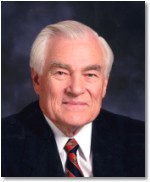 Ten Ideas to Increase Your Spirituality
Ten Ideas to Increase Your Spirituality
People who love people have an easier time being spiritual. In that Upper Room, the Lord issued a new commandment: “That ye love one another; as I have loved you, that ye also love one another. By this shall men know that ye are my disciples, if ye have love one to another”. Love is a difficult word to understand in the English language. For example, I could say to someone that “I love you.” I used exactly those same words this morning speaking to my wife, Barbara, and I meant something very different. We need to know who is speaking to whom in what context. The Greeks don’t have the same problem because they have three different words for love. The first is eros, or romantic love. The English word erotic comes from that Greek root. The second is philia, or brotherly love. The U.S. “City of Brotherly Love,” Philadelphia, gets its name from that Greek root. The third is agape, or Godlike love, the kind of love that enables our Father in Heaven and the Lord to love us even though we are not perfect. I understand that each time in the Greek text of the New Testament when the Lord commands us to love our enemies, it is agape that is used. Here is a very important point for all of us to remember. If we want to cultivate spirituality, we should love everyone at the levels of agape or philia, but when it comes to eros, or romantic love, we are not commanded to love everyone. In fact, the full expression of romantic physical affection is intended by the Lord for two people inside the bonds of marriage. If we follow that counsel, our spirituality will increase. If we don’t, we will lose the Spirit almost immediately. It is interesting to note that at the age that the natural attraction toward members of the opposite sex is as high as it likely will ever be, what does the Lord do? He calls young men on missions and expects them to go two years with no more physical contact with a member of the opposite sex than shaking hands briefly. The miracle is that almost all of the missionaries rise to that challenge brilliantly. For the few who do not, it is a personal disaster. When an elder who has followed this guideline returns home and finds someone he can convince to become his eternal companion, he brings to her, his future wife, the great gift of a husband and future father of her children who has learned self-control. He is one who is not driven by every feeling that comes into his system. He is in control. The Church’s marriages are stronger because of so many who have learned this self-control.
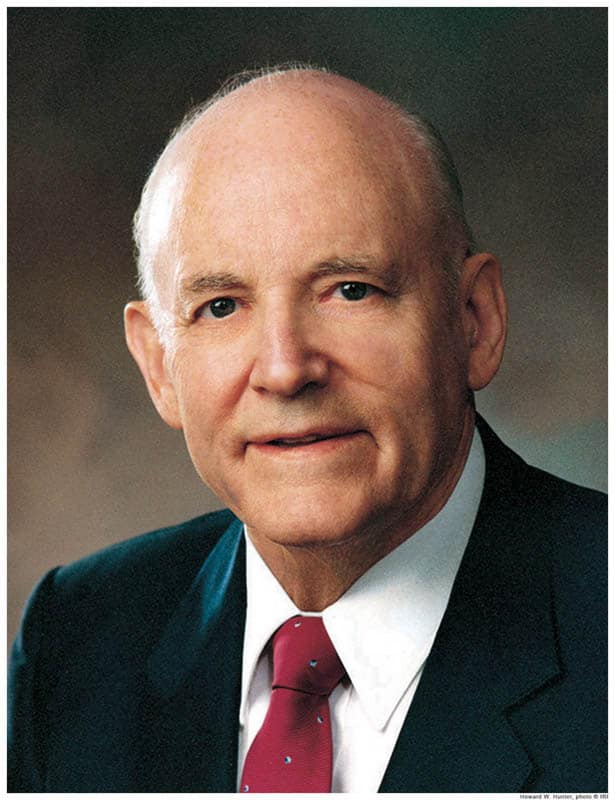 True Greatness
True Greatness
Surely we need not look far to see the unnoticed and forgotten heroes of daily life. I am speaking of those you know and those I know who quietly and consistently do the things they ought to do. I am talking about those who are always there and always willing. I am referring to the uncommon valor of the mother who—hour after hour, day and night—will stay with and care for a sick child, or the invalid who struggles and suffers without complaint. I’m including those who always volunteer to give blood or volunteer to work with Scouts. I am thinking of those who may not be mothers but who nevertheless “mother” the children of the world. I am speaking of those who are always there to love and nurture. I am also talking about teachers and nurses and farmers and others who do the good work of the world, who teach and feed and clothe, but who also, in addition, do the work of the Lord—those who lift and love. I am referring to those who are honest and kind and hardworking in their daily work, but who are also servants of the Master and shepherds of his sheep. Now, I do not mean to discount too much the great accomplishments of the world that have given us so many opportunities and which provide culture and order and excitement to our lives. I am merely suggesting that we try to focus more clearly on the things in life that will be of greatest worth. You will remember that it was the Savior who said, “He that is greatest among you shall be your servant.”
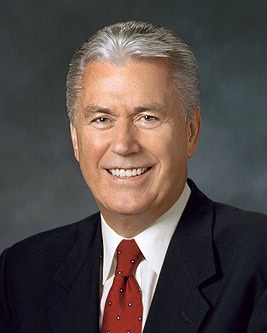 You Are My Hands
You Are My Hands
True love requires action. We can speak of love all day long—we can write notes or poems that proclaim it, sing songs that praise it, and preach sermons that encourage it—but until we manifest that love in action, our words are nothing but “sounding brass, or a tinkling cymbal.” Christ did not just speak about love; He showed it each day of His life. He did not remove Himself from the crowd. Being amidst the people, Jesus reached out to the one. He rescued the lost. He didn’t just teach a class about reaching out in love and then delegate the actual work to others. He not only taught but also showed us how to “succor the weak, lift up the hands which hang down, and strengthen the feeble knees.” Christ knows how to minister to others perfectly. When the Savior stretches out His hands, those He touches are uplifted and become greater, stronger, and better people as a result. If we are His hands, should we not do the same? . . The Savior revealed the perfect priorities for our lives, our homes, our wards, our communities, and our nations when He spoke of love as the great commandment upon which “hang all the law and the prophets.” We can spend our days obsessing about the finest details of life, the law, and long lists of things to do; but should we neglect the great commandments, we are missing the point and we are clouds without water, drifting in the winds, and trees without fruit. Without this love for God the Father and our fellowmen we are only the form of His Church—without the substance. What good is our teaching without love? What good is missionary, temple, or welfare work without love? Love is what inspired our Heavenly Father to create our spirits; it is what led our Savior to the Garden of Gethsemane to make Himself a ransom for our sins. Love is the grand motive of the plan of salvation; it is the source of happiness, the ever-renewing spring of healing, the precious fountain of hope. As we extend our hands and hearts toward others in Christlike love, something wonderful happens to us. Our own spirits become healed, more refined, and stronger. We become happier, more peaceful, and more receptive to the whisperings of the Holy Spirit. With all my heart and soul I give thanks to our Heavenly Father for His love for us, for the gift of His Son, for the life and example of Jesus the Christ, and for His sinless and selfless sacrifice. I rejoice in the fact that Christ is not dead but risen from the grave! He lives and has returned to the earth to restore His authority and gospel to man. He has given us the perfect example of the kind of men and women we should be.
